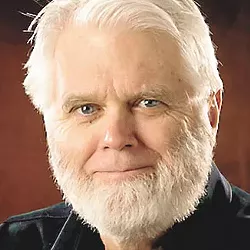Gonzaga's Mother's Day celebration ushered in our season of college commencements — those memorable shows for students and family. Still, we know they can be tedious, even jolting affairs. Cotton Mather, on the day of Harvard's celebration in 1717, wrote in his diary: "This day, being our insipid, ill contrived anniversary solemnity which we call Commencement I chose to spend it alone."
Mather anticipated the student-selected "frat bro" who, without laying a glove on coherence, yammered on for more than 15 minutes at our son's University of Washington graduation.
Or how about honoring the highest GPA in the graduating class — the bright-eyed student who majored in sports management?
Or any job-training program posing as an academic major, which brings us to the subject of liberal arts education in the time of college as merely preparing you for a job. We refer to this as neoliberalism.
Let's be clear: Such a student should be proud of his accomplishments. He took all the rigorous core courses, which included philosophy, religious studies, mathematics and more. Still, I have a problem honoring any student at a liberal arts school who didn't major in the liberal arts — philosophy, religious studies, English literature, history, foreign language study, physics, geography, the natural sciences and mathematics. Or the performing arts and the social sciences like psychology, anthropology, economics, sociology and political science.
Much is at stake. "Education," argues Henry Giroux, in his book Neoliberalism's War on Higher Education, "has been removed from its utopian possibilities of educating young people to be reflective, critical and socially engaged agents."
And civics? Defined as the study of the theoretical and practical aspects of citizenship, the duties of citizens to each other as members of a political body and to the government — well, civics has disappeared altogether. Instead of producing citizens, corporate America wants what Giroux refers to as "robots, technocrats and trained workers."
Moreover, job training, especially if packaged in credentialing (licensing is both different and necessary), serves as a closed shop. It shuts down access and fails to recognize knowledge.
Consider: You are well-read, know your way around libraries and have computer skills. Yet if you don't have a library science degree — the credential — you aren't qualified to work as a librarian. (Years back, librarians at EWU actually expressed shocked dismay when they discovered that the Librarian of Congress didn't have a library science degree.)
Say you are great with kids, love books, communicate well and have demonstrated classroom talent. Without that "Ed" credential? No job. Thus we'd never get a Theodore Sizer, who was an English major, later an education dean and author of the Horace trilogy on school reform.
Or if you are well-informed and well-read on urban life and problems, but don't have a planning degree and thus aren't "qualified" for a job in any city planning department. Too bad for Jane Jacobs and Lewis Mumford — neither of whom were credentialed planners.
No criminal justice credential? Then you won't qualify to work in criminal justice. Meaning that, these days, the James Q. Wilsons of the world need not apply.
It wasn't always this way. We used to have a kind of apprentice system. (The trades still do — from apprentice to journeyman to master.) In my early 20s, I worked as a copy boy for The Washington Post. After a few months of running copy, I was sent off to cover a church service and write a short column on the sermon for the Post's Sunday church supplement. A Post writer? Hardly. I was just an apprentice learning the craft. Up by the ranks, they called it. Had I stayed at the paper I would have moved on to the "ghoul beat" — manning the police radio late at night. I had not taken a single class in journalism, but no matter, I was being given a chance to learn on the job.
I left the Post for a job with the Navy as a budget analyst. I told my interviewers that I had majored in political science and minored in history — that I knew nothing about budget analysis. "That's OK," said the tall man at the end of the table, "you will learn how we do things over the next few months. And besides, you couldn't learn this in college anyway."
He made it clear that they were looking for critical thinking, good writing and communication skills. To boil it down, they valued a liberal arts education and I would start out as an apprentice. That's the kind of opportunity neoliberalism has removed from the equation.
As Giroux observes, with universities becoming ever more closely associated with corporate America (held hostage, even), they face more difficult challenges as they attempt to maintain their claim to being places of distinction, essential to the very idea of democracy — havens for thought, creativity and inquiry.
If at commencement we don't draw the distinction between this and job training, what is the purpose of the ceremony? Yes, it's a show and a celebration, but is that all? Somewhere in there we need to recall the purpose and ideals of a classic American liberal arts education.♦


















